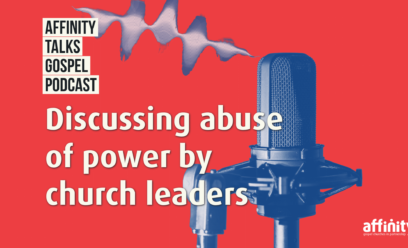Concerns about the Online Safety Bill

This article first appeared in the Summer 2022 edition of the Social Issues Bulletin. Download the whole Bulletin.
There are serious concerns that the Government’s flagship Online Safety Bill will lead to religious liberty being restricted online. While it is aimed at tackling serious problems, the Bill puts free speech at risk.
The Bill applies to social media and search engines. It is rightly intended to make Big Tech companies like Google, Twitter and Meta – owners of Facebook and Instagram – take more responsibility for the content that can be accessed through their platforms. But the Government’s approach is very dangerous. Among other things, it creates a category of ‘legal but harmful’ material that social media companies will be expected to police.
This is content deemed to be harmful to adults even though it breaks no laws. This begs the obvious question: who defines what is ‘harmful’? It is likely to be highly subjective and inconsistent. People’s definitions of harmful differ, and can often be matters of belief, taste and culture.
Four dangers to free speech
There are four key dangers to highlight.
Firstly, the Bill gives extraordinary power to the Secretary of State. He or she will be able to decide which opinions are acceptable online by defining the ‘legal but harmful to adults’ category.
So far, the Government has not published what it intends to cover, though the suggestion has been that it will include matters like self-harm, harassment, eating disorders and racist hate.[1] But regardless of what the current Secretary of State, Nadine Dorries, decides to include, any of her successors will be able to change the definition through regulations. Such regulations receive minimal scrutiny, and are very rarely rejected by Parliament.
This power creates a ready-made tool for state censorship in the future, and there will be constant pressure from activists for restrictions on free speech. In our current culture, people routinely attribute harm to opinions they disagree with.
Secondly, Tech companies will go well beyond what’s required. Silicon Valley billionaires have already shown themselves very willing to take down views they personally object to, and the Bill will legitimise such censorship.
Christians have already been victims of Big Tech bias. Peter Saunders, the former CEO of the Christian Medical Fellowship, had a video on transgenderism removed from YouTube several years ago for an alleged violation of YouTube’s terms of service.[2] It was not hateful or abusive, but was simply consistent with the biblical position. A publication of US Christian organisation Focus on the Family was blocked from Twitter because a tweet described a transgender woman as ‘a man who believes he is a woman’.
Roman Catholic billionaire and technology entrepreneur Peter Rex has said that ‘social-media platforms increasingly censor religious believers who oppose abortion, assisted suicide and transgender ideology’.[3]
The Government has identified an existing problem with tech companies taking down content arbitrarily. But in this respect the Bill is a hindrance, not a help. It dangerously enshrines into law that it is appropriate for companies to censor legal content, deciding what should and shouldn’t be allowed in crucial and controversial areas of debate. Companies will censor far more than they need to, not least in view of the very heavy fines that could be imposed if they are deemed to have failed to act.
What’s more, because of the speed and scale necessary, this will be done by automated processes, not people. An expert in artificial intelligence who sent written evidence to the Committee wrote in his submission that:
Softer targets for policing, such as legal but harmful content, will be automatically removed with filters that will be set to err on the side of caution. Their crude pattern matching based on human labelled training data, operating over billions of posts, will result in hundreds of millions of false positives to the detriment of diversity of opinion and free speech.[4]
A third key problem is the Bill’s weak freedom of expression safeguards. The Government has made great claims about the Bill’s protections for free speech but sadly the reality doesn’t live up to the hype.
The free speech duties are weak compared to the pro-censorship pressure that companies will be under. There is ‘a duty to have regard to the importance of protecting users’ right to freedom of expression within the law’. But a company could ‘have regard’ to free speech without it having a significant impact on its actions. This duty has no real weight behind it. It just means the importance of free speech must be taken into account. This will not be strong enough to counterbalance the way other substantial duties restrict free speech. The weakness of the clause is seen in the need to have a stronger protection when it comes to ‘content of democratic importance’, for example. If the free speech clause itself did the job, there would be no need for this additional safeguard.
Of course, the Bill must ensure that the criminal law applies on the internet. It must require internet companies to prevent illegal content appearing on their platforms. But the Bill goes beyond the criminal law by regulating what is legal yet deemed harmful. And as already mentioned, tech companies need no external pressure to censor views they don’t agree with. As things stand, there will be less freedom of speech online than offline.
Offline, we have excellent free speech laws. What restrictions we have on public speech are usually necessary to protect the rights and freedoms of others. Free speech in the market square means that a person is free to say what they want within the law and others are equally free to put headphones on and ignore them. Free speech does not mean forcing others to listen. In many ways, social media platforms are the internet equivalent of the market square, and so free speech there must be equally protected.
To achieve this, the free speech duty must be drastically strengthened to create a presumption of free speech. Whatever you can say on the street you should be able to say online.
The fourth danger is Ofcom. The Bill turns Ofcom into the most powerful internet regulator in the Western world. The Government sees this as a good thing.
Ofcom’s codes and guidance will determine how tech companies implement the duties, and it can impose fines of up to ten per cent of global revenue for breaches – billions of pounds for the largest companies.
There would be concerns about any regulator being given the kind of power the Bill gives to Ofcom. But there are particular reasons for believing that Ofcom’s hands are not safe.
The regulator must have a robust understanding of free speech, especially on contentious issues of public debate. One of those at the moment is transgenderism.
Yet on this issue, Ofcom’s Chief Executive, Dame Melanie Dawes, has said that broadcasters should ‘steer their way through these debates without causing offence and without bringing inappropriate voices to the table’.[5] She seemed to accept that those who question radical gender ideology would be ‘inappropriate voices’ and likened them to racists. She said she has had discussions with controversial LGBT rights group Stonewall about how balanced trans debate should be conducted.
So there are serious questions over how well Ofcom would defend free speech.
Proposing a better bill which properly protects freedom of expression
Having emphasised the dangers, it is also important to say that the Bill includes some welcome proposals. There is rightly a focus on protecting children, including through requiring age checks for pornography. Measures to stop children accessing pornography so easily are long overdue. And duties to allow social media users to verify their accounts and filter out non-verified user content will be important steps in tackling the scourge of anonymous online abuse. But these and various other good things in the Bill do not make up for the overarching concerns about free speech.
If something is so harmful that adults should not be exposed to it, this should be a matter for the criminal law. The Government should not be creating a nebulous ‘legal but harmful’ standard and then outsourcing the policing of that standard to Ofcom and tech firms.
The Online Safety Bill was debated in Parliament for the first time in April and has since been considered in greater detail by a committee of MPs. Some MPs have raised free speech issues, but there is clearly still a lot of work to do to convince the Government to properly protect freedom of expression.
We must pray that politicians will get into the detail of the Bill rather than the Government spin, and that it will be limited to tackling genuinely harmful activity and will protect free speech and religious liberty.
Footnotes:
[1] ‘World-first online safety laws introduced in Parliament’, UK Government, 17 March 2022, see https://www.gov.uk/government/news/world-first-online-safety-laws-introduced-in-parliament as at 12 April 2022; ‘New plans to protect people from anonymous trolls online’, UK Government, 25 February 2022, see https://www.gov.uk/government/news/new-plans-to-protect-people-from-anonymous-trolls-online as at 12 April 2022
[2]https://www.cmf.org.uk/advocacy/sex-and-relationships/transsexuality/
[3]https://www.christian.org.uk/news/tech-entrepreneur-silicon-valley-is-hostile-to-christian-belief/
[4]https://publications.parliament.uk/pa/cm5803/cmpublic/OnlineSafetyBill/memo/OSB25.htm
[5]https://committees.parliament.uk/oralevidence/1419/html/
Stay connected with our monthly update
Sign up to receive the latest news from Affinity and our members, delivered straight to your inbox once a month.



